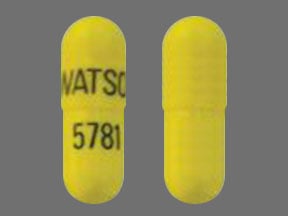
Macrodantin Coupons & Savings Card – Discount Prices from $8.32
Brand for: Nitrofurantoin macrocrystal
My prescription
Edit
100MG, Nitrofurantoin Macrocrystal (14 Capsules)
Select pharmacy

CVS
$19.35
COUPON PRICE
Walmart
$8.32
COUPON PRICE
Walgreens
$12.71
COUPON PRICE
Albertsons
$13.77
COUPON PRICEMacrodantin savings card
Show this card to your pharmacist
Walmart
$8.32
BIN
ID
PCN
GRP
019876
LH6C1CCE82
CHIPPO
LHX
Powered by
Related nitrofuran antibiotics prescriptions
More prescriptions for urinary tract infection
Related nitrofuran antibiotics prescriptions
More prescriptions for urinary tract infection
Macrodantin (Nitrofurantoin Macrocrystal) dosage forms
Dosage Quantity Price from Per unit 25MG 30 Capsules $31.58 $1.05 25MG 100 Capsules $70.58 $0.71 50MG 1 Capsule $2.76 $2.76 50MG 14 Capsules $6.07 $0.43 50MG 28 Capsules $9.64 $0.34 50MG 30 Capsules $10.15 $0.34 50MG 40 Capsules $12.71 $0.32 50MG 50 Capsules $15.26 $0.30 50MG 90 Capsules $29.16 $0.32 50MG 100 Capsules $30.74 $0.31
| Dosage | Quantity | Price from | Per unit |
|---|---|---|---|
| 25MG | 30 Capsules | $31.58 | $1.05 |
| 25MG | 100 Capsules | $70.58 | $0.71 |
| 50MG | 1 Capsule | $2.76 | $2.76 |
| 50MG | 14 Capsules | $6.07 | $0.43 |
| 50MG | 28 Capsules | $9.64 | $0.34 |
| 50MG | 30 Capsules | $10.15 | $0.34 |
| 50MG | 40 Capsules | $12.71 | $0.32 |
| 50MG | 50 Capsules | $15.26 | $0.30 |
| 50MG | 90 Capsules | $29.16 | $0.32 |
| 50MG | 100 Capsules | $30.74 | $0.31 |
| 100MG | 14 Capsules | $8.32 | $0.59 |
| 100MG | 1 Capsule | $2.92 | $2.92 |
| 100MG | 2 Capsules | $3.33 | $1.67 |
| 100MG | 4 Capsules | $4.16 | $1.04 |
| 100MG | 6 Capsules | $4.99 | $0.83 |
| 100MG | 8 Capsules | $5.83 | $0.73 |
| 100MG | 10 Capsules | $6.66 | $0.67 |
| 100MG | 12 Capsules | $7.49 | $0.62 |
| 100MG | 15 Capsules | $8.74 | $0.58 |
| 100MG | 16 Capsules | $9.15 | $0.57 |
| 100MG | 20 Capsules | $10.82 | $0.54 |
| 100MG | 21 Capsules | $11.23 | $0.54 |
| 100MG | 28 Capsules | $14.14 | $0.51 |
| 100MG | 30 Capsules | $14.97 | $0.50 |
| 100MG | 40 Capsules | $19.13 | $0.48 |
| 100MG | 50 Capsules | $22.05 | $0.44 |
| 100MG | 100 Capsules | $33.80 | $0.34 |
What is Macrodantin antibiotic used for?
Macrodantin is an antibiotic used to treat and prevent urinary tract infections (UTIs). It works by stopping the growth of bacteria in the urinary tract.
Is Macrodantin the same as Bactrim?
Macrodantin and Bactrim are not the same. Macrodantin contains the active ingredient nitrofurantoin, while Bactrim is a combination of sulfamethoxazole and trimethoprim. They are both antibiotics but are used to treat different types of bacterial infections.
What are the side effects of Macrodantin?
Macrodantin, which contains the active ingredient nitrofurantoin, can cause several side effects. Common side effects include nausea, headache, and loss of appetite. Some individuals may experience diarrhea, dizziness, or drowsiness. More serious side effects, though less common, can include lung problems, liver issues, or allergic reactions. If any severe side effects occur, it is important to seek medical attention promptly.
What bacteria does Macrodantin treat?
Macrodantin, which contains the active ingredient nitrofurantoin, is primarily used to treat urinary tract infections caused by certain bacteria. It is effective against common uropathogens such as Escherichia coli, Enterococcus faecalis, Staphylococcus saprophyticus, and some strains of Klebsiella and Enterobacter.
Why would a doctor prescribe Macrodantin?
A doctor might prescribe Macrodantin to treat or prevent urinary tract infections (UTIs) caused by certain bacteria. It is an antibiotic that works by stopping the growth of bacteria in the urinary tract.
